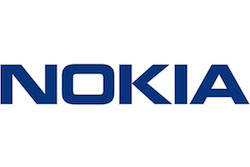Nokia Networks has unveiled a new look product range with changes to small cells, LTE and RAN products in anticipation of increased data growth.
Among the portfolio changes, the vendor is widening its small cells range by offering dual-band pico cells and a Flexi Zone 3G/Wi-Fi base station. It is planning carrier aggregation for TDD-FDD, small cells and between infrastructure sites.
In addition to its LTE-U technology, which it announced yesterday, it said it would offer a new eight pipe TD-LTE-Advanced 3.5GHz radio. Its TD-LTE-A range will also include 4×4 MIMO and downlink coordinated multipoint.
Other changes include carbon neutral Single RAN Advanced base stations, as well as new energy savings software and a new radio antenna system.
The vendor also announced new consulting services and a optimisation service, which it claimed could reduce unnecessary handovers by up to 20 percent.
Ken Rehbehn, Principal Analyst, 451 Research, said: “Mobile network operators are squeezed between surging customer mobile broadband data use and rising network costs. Innovative mobile network technologies and robust professional service offers make it possible for operators to deliver best-in-class 2G, 3G and LTE customer experience while driving down operational costs.”
Nokia Networks has been anticipating a one thousand-fold increase in traffic between 2010 and 2010, as the industry shifts towards 5G and an Internet of Things dominated culture.
Marc Rouanne, Executive Vice President, Mobile Broadband at Nokia Networks, commented: “Operators are preparing for the huge data growth that is coming with 5G and ultra-dense networks. We help them plan ahead to evolve their networks, making the most of their existing equipment as well as deploying the newest technologies to provide a seamless experience for mobile users across all access technologies and network layers.”
Read more:
New A-L portfolio aims to put operators on the road to 5G
Ericsson unveils 100GE router, modular architecture in next-gen product deluge



